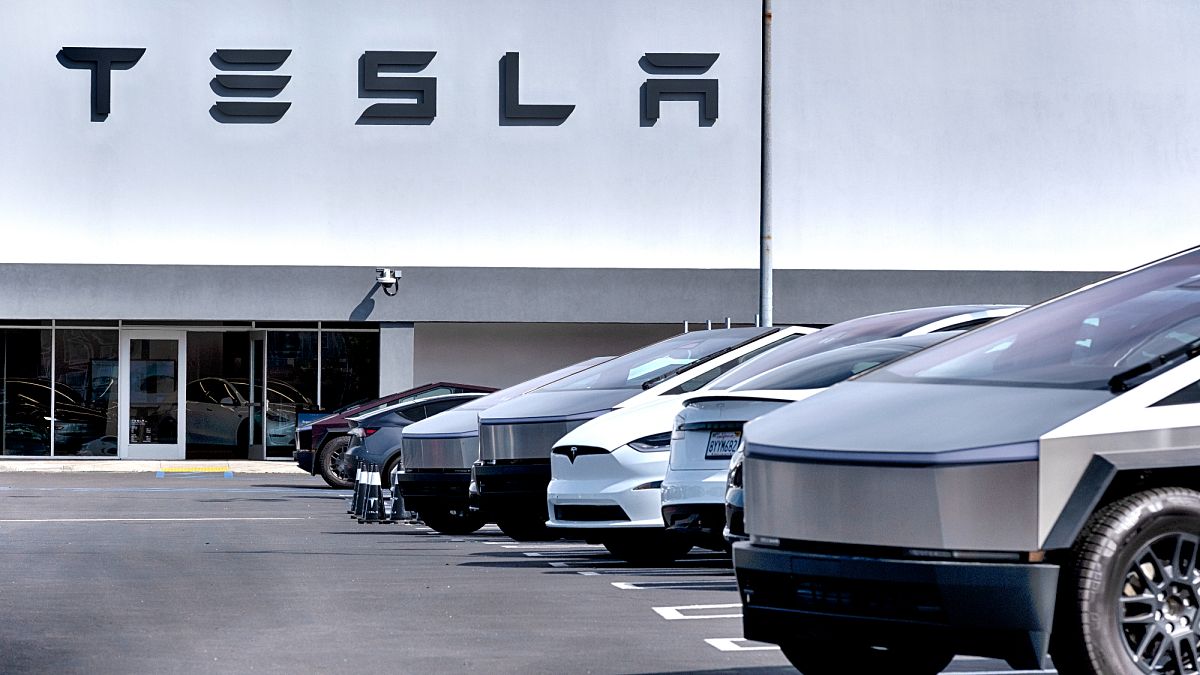Musk said on a conference call with analysts on Tuesday that “now that the major work of establishing Department of Government Efficiency is done,” that he will be “allocating far more of my time to Tesla” starting in May. Musk said he now expects to spend just “a day or two per week on government matters”.
Tesla struggled to sell vehicles as the company faced angry protests over Musk’s leadership of DOGE, a jobs-cutting group that has divided the country. The Austin, Texas, company reported a 71% drop in profits and a 9% decline in revenue for the first quarter.
“Investors wanted to see him recommit to Tesla,” Dan Ives, a senior equity research analyst at Wedbush Securities, said. “This is a big step in the right direction.”
Investors sent Tesla shares up more than 5% in after-hours trading on Tuesday in the US, although they are still down more than 40% for the year.
Tesla doubles down on autonomous vehicles
The company reconfirmed that it expects to roll out a cheaper version of its best-selling vehicle, the Model Y sport utility vehicle, in the first half of this year. It also stuck with its predictions that it will be able to launch a paid driverless robotaxi service in Austin in June and have much of its fleet operating by itself next year.
“There will be millions of Teslas operating autonomously in the second half of the year,” Musk said in a conference call after the results were announced. He later added about the personal use of autonomous vehicles, “Can you go to sleep in our cars and wake up at your destination? I’m confident that will be available in many cities in the US by the end of this year.”
Auto analyst Sam Abuelsamid at Telemetry Insight said he doubts Musk’s predictions.
“The system is not robust enough to operate unsupervised. It still makes far too many errors,” he said. “It will suddenly make mistakes that will lead to a crash.”
The planned rollout of the robotaxi without a steering wheel or pedals comes as federal regulators still have open investigations into whether the driverless technology that Tesla is currently working on is completely safe.
Tesla’s driver-assistance technology that can steer or stop a car but still requires humans to take over at any time- its so-called autopilot- is being probed by the National Highway Traffic Safety Administration for whether it alerts drivers sufficiently when their attention wanders.
Similarly, the company’s full self-driving, which is only partial self-driving and has drawn criticism for misleading drivers with the name, has come under scrutiny for its tie to accidents in low-visibility conditions like when there is sun glare.
Rising Chinese competition and tariffs
Another challenge to Tesla, which once dominated the EV business: It is facing fierce competition for the first time.
Earlier this year, Chinese EV maker BYD announced it had developed an electric battery that can charge within minutes. Tesla’s European rivals have begun offering new models with advanced technology that is making them real Tesla alternatives, especially as popular opinion has now turned against Musk. The Tesla CEO has alienated potential buyers in Europe by publicly supporting far-right politicians on the continent.
Tesla said on Tuesday that quarterly profits fell from $1.4 billion (€1.2bn) to $409 million (€359.3m). That’s far below analyst estimates. Tesla’s revenue fell from $21.3bn (€18.7bn) to $19.3bn (€17bn) in the January through March period, also below Wall Street’s forecast. Tesla’s gross margins, a measure of earnings for each dollar of revenue, fell from 17.4% to 16.3% .
The company has said it will be hurt less by the Trump administration’s tariffs than most US car companies because it makes most of its US cars domestically. But it won’t be completely unscathed. It sources some materials for its vehicles from abroad that will now face import taxes.
Tesla warned while announcing its results that tariffs will hit its energy storage business, too.
Retaliation from China is also expected to hurt Tesla. The company was forced earlier this month to stop taking orders from mainland customers for two models, its Model S and Model X. It makes the Model Y and Model 3 for the Chinese market at its factory in Shanghai.
The company’s side business of selling “regulatory credits” to other automakers that fall short of emission standards boosted results for the quarter.
Tesla generated $595m (€522.9m) from credit sales, up from $442m (€388.4m) a year ago. Meanwhile, it generated $2.2bn (€1.9bn) in cash flow versus $242m (€212.7m) a year earlier.
Morningstar analyst Seth Goldstein said earlier reports of plunging sales that had tanked the stock made the quarterly results almost predictable.
“They’re not particularly surprising given that deliveries were down,” he said. “It was good to see positive cash flow.”

